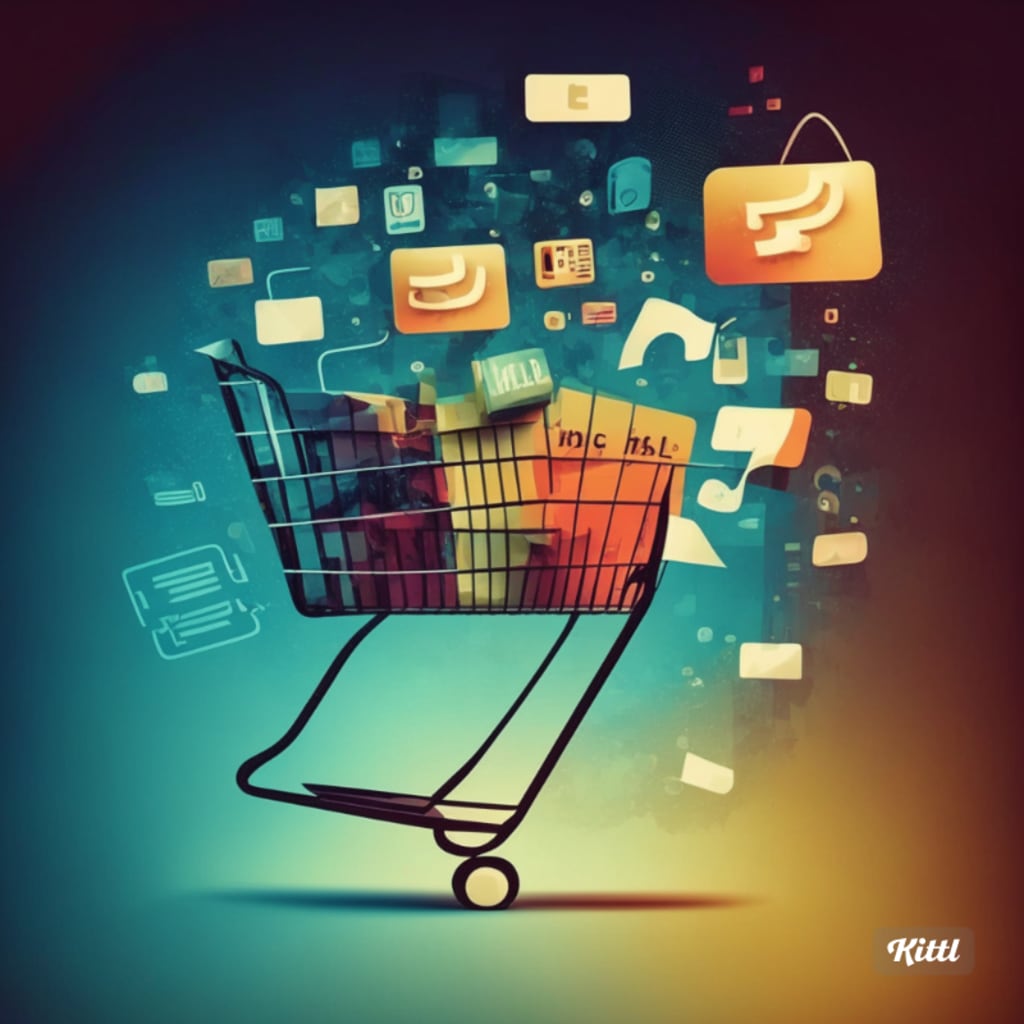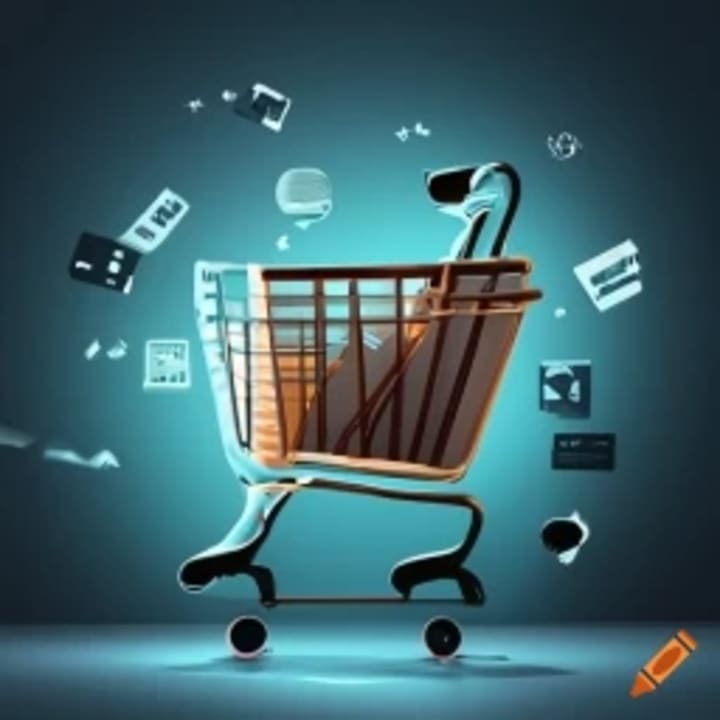The Future of E-commerce: Embracing Marketing Automation for Success
Embracing Marketing Automation: A Transformative Path to E-commerce Success

Introduction
The rise of the internet and technological advancements have revolutionized the way we conduct business. E-commerce, the process of buying and selling goods and services online, has seen remarkable growth over the past few decades and has become an integral part of the global economy. In this digital age, where convenience and efficiency reign supreme, e-commerce has emerged as the future of retail. However, to stay competitive and thrive in this fast-paced landscape, businesses must leverage marketing automation to streamline their processes, enhance customer experiences, and unlock unprecedented growth opportunities.

I. The Evolution of E-commerce
The journey of e-commerce began in the 1990s when the internet became accessible to the masses. Initially, online shopping faced skepticism due to concerns about security, trust, and limited options. However, as technology improved and customer trust grew, e-commerce started to gain traction.
In recent years, the adoption of smartphones, improved internet connectivity, and the convenience of mobile shopping have accelerated the e-commerce revolution. Customers now have the ability to shop anytime, anywhere, and businesses have been quick to adapt to these evolving consumer preferences.

II. The Growth of E-commerce
The growth of e-commerce has been nothing short of remarkable. Online retail sales have surged exponentially year after year, outpacing traditional brick-and-mortar stores. A combination of factors has contributed to this trend, including:
Global Reach: E-commerce transcends geographical boundaries, allowing businesses to reach customers worldwide, irrespective of their physical location.

Convenience: Online shopping offers unparalleled convenience, as customers can browse and purchase products from the comfort of their homes, avoiding long queues and travel hassles.
Diverse Product Range: E-commerce platforms offer an extensive array of products, providing customers with a wider selection and the ability to compare prices easily.
Personalization: Advanced data analytics and customer tracking enable businesses to offer personalized recommendations, enhancing the overall shopping experience.

Social Commerce: The integration of social media with e-commerce has created a seamless shopping experience, with customers being able to purchase products directly through social media platforms.
III. The Role of Marketing Automation in E-commerce
Marketing automation refers to the use of technology and software to automate repetitive marketing tasks, streamline processes, and deliver personalized experiences to customers. It plays a pivotal role in shaping the future of e-commerce by transforming the way businesses interact with their audience. Here are some key aspects of marketing automation in e-commerce:
Customer Acquisition: Marketing automation tools help businesses identify and target potential customers more effectively. By analyzing user behavior and preferences, businesses can create targeted marketing campaigns to attract new customers and increase conversions.

Personalized Customer Experience: With the help of marketing automation, businesses can gather and analyze customer data to deliver personalized recommendations, product offers, and promotions. This level of personalization fosters customer loyalty and increases customer lifetime value.
Cart Abandonment Recovery: Cart abandonment is a significant challenge in e-commerce. Marketing automation allows businesses to send automated follow-up emails or reminders to customers who abandoned their carts, enticing them to complete their purchases.
Email Marketing: Email marketing remains one of the most effective channels for driving sales. Marketing automation tools enable businesses to send personalized and timely emails to their subscribers, nurturing leads and increasing customer engagement.

Omnichannel Marketing: E-commerce customers interact with businesses across multiple platforms and devices. Marketing automation facilitates a seamless omnichannel experience by integrating data from various touchpoints, ensuring consistent messaging and customer engagement.
IV. The Benefits of Marketing Automation in E-commerce
Embracing marketing automation offers several benefits that can significantly impact a business's success in the e-commerce landscape:
Increased Efficiency: Marketing automation streamlines repetitive tasks, saving time and resources, and enabling businesses to focus on strategic initiatives.

Enhanced Customer Experience: Personalized interactions and timely responses lead to improved customer satisfaction, fostering loyalty and increasing customer retention.
Data-Driven Decision Making: Marketing automation provides valuable insights into customer behavior and preferences, empowering businesses to make data-driven decisions and optimize their marketing strategies.
Scalability: Automation allows businesses to scale their operations without increasing the workforce proportionally, making it a cost-effective solution for growth.
Improved ROI: By targeting the right audience with personalized campaigns, businesses can experience higher conversion rates and ultimately achieve a better return on investment.
V. Challenges and Considerations
While marketing automation holds tremendous promise for the future of e-commerce, businesses must be aware of the challenges it presents:
Implementation Complexity: Integrating marketing automation tools into existing systems can be complex and require expertise. Businesses need to invest in proper training and support to ensure successful implementation.
Data Security and Privacy: With the collection and storage of customer data, businesses must prioritize data security and comply with privacy regulations to protect their customers' information.
Balance between Automation and Personalization: While automation can enhance efficiency, businesses must strike a balance to ensure that personalized customer experiences are not compromised.
Constant Adaptation: The e-commerce landscape is ever-evolving, and marketing automation strategies must continually adapt to changing consumer behaviors and technological advancements.

Conclusion
E-commerce has become the driving force behind the retail industry, and its influence will continue to grow as technology advances. In this fast-paced digital era, marketing automation emerges as a critical tool for e-commerce businesses to stay competitive and thrive. By harnessing the power of automation, businesses can optimize their marketing efforts, deliver personalized experiences, and unlock unprecedented growth opportunities.
The future of e-commerce is undoubtedly intertwined with marketing automation. As technology continues to advance, businesses that embrace automation strategically and responsibly will be best positioned to succeed in this dynamic and evolving landscape. By focusing on efficiency, personalization, and customer-centricity, e-commerce businesses can build lasting relationships with customers and secure their place in the future of retail.





Comments
There are no comments for this story
Be the first to respond and start the conversation.